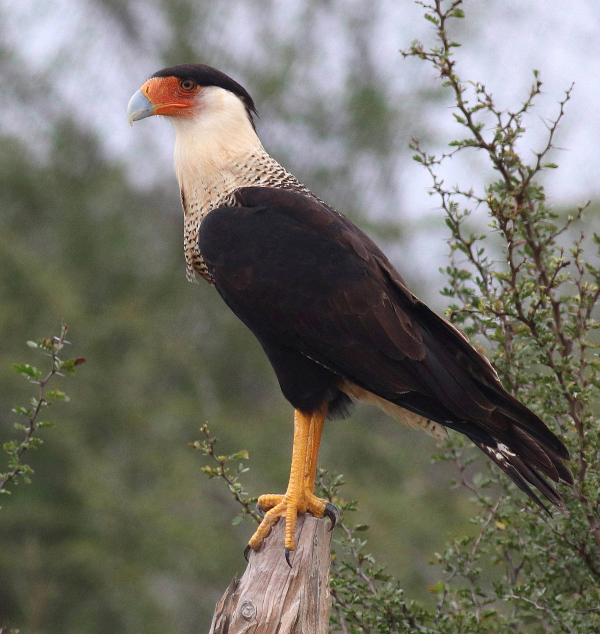
After its initial sighting was reported, many birders were been able to observe and photograph the First State Record Crested Caracara, far off-course in Woodstock, Vermont.
|
An exciting find for Vermont birders was the First State Record Crested Caracara! Eastern Canada yielded a threesome of rare birds, including a Varied Thrush in Nova Scotia, a Carolina Wren on Prince Edward Island, and a Black Vulture in Quebec. Far south, a Bananaquit sighted on St. George Island proved to be the first record for the species in the panhandle region of northern Florida. Farther west in Baton Rouge, Louisiana, an off-course MacGillivray’s Warbler provided fine photos and exciting memories, and in Sherman, Illinois a Lazuli Bunting was photographed at a lucky birder’s feeding station.
STATE RECORD
First State Record Crested Caracara – Woodstock, Vermont
REALLY RARE SIGHTINGS
Bananaquit – St. George Island, Florida
MacGillivray’s Warbler – Baton Rouge, Louisiana
Carolina Wren – Montague, Prince Edward Island
Varied Thrush – Cape Breton, Nova Scotia
Black Vulture – Mont-Laurier, Quebec
Lazuli Bunting – Sherman, Illinois
CONTINUING RARE BIRDS
The growing list of continuing rare birds reported in earlier Rare Birds articles includes:
Garganey – Colusa and Salton Sea, California
Siberian Accentor – Woodland, Washington
Thick-billed Vireo – Long Key, Florida
La Sagra’s Flycatcher – Everglades National Park, Florida
White Wagtail – Austin, Texas
March will likely improve the number of rare bird sightings as more birds begin seasonal movements and migrations, so keep vigilant as spring wanderlust takes effect.
For more information, see the American Birding Association’s Rare Bird Alert at https://www.aba.org/28800-2/ Special Thanks to the ABA, and Nate Swick, who does such a great job of compiling the ABA’s Rare Bird Alert, which we use to prepare this weekly replay.
You can often find more information about individual rare bird sightings from the state rare bird alert listserves that you can access at http://birding.aba.org/ or at https://www.facebook.com/groups/ABArare/